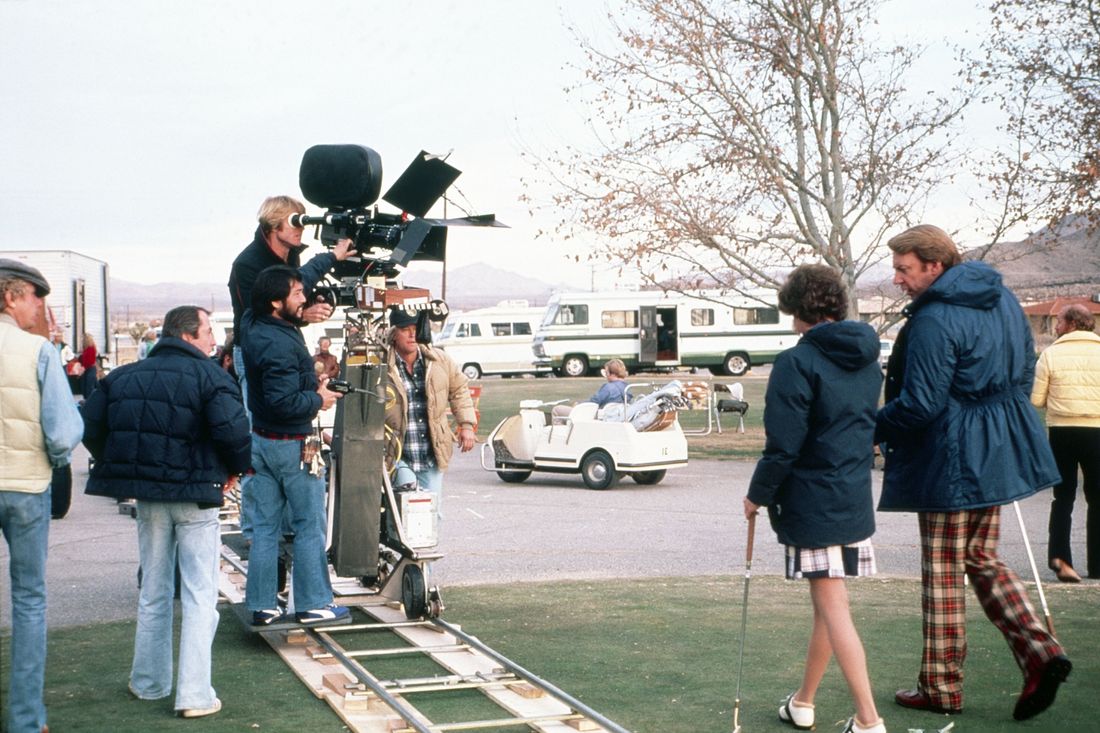
I’ve always been fascinated by the 1980 Best Picture race. While Robert Redford’s *Ordinary People* won the Oscar, many film buffs now champion Martin Scorsese’s *Raging Bull* as the stronger film – a raw, powerful story about boxing and inner turmoil. *Ordinary People*, adapted from Judith Guest’s novel, is a very different experience. It’s set in the quiet suburbs of Chicago and follows a wealthy family struggling with grief after losing one son and another attempting suicide, burdened by guilt. It’s a sad film, but not without moments of hope, and it always struck me as a surprising first directing effort for Redford. What’s really interesting is how *Ordinary People* changed the way people saw him. Before, Redford was this iconic, all-American movie star – handsome, charming, and often the funny guy. While there’s some humor in *Ordinary People*, it’s a much more subdued, uncomfortable kind – the kind where you laugh a little because it feels like the characters are avoiding saying what’s really on their minds. It was a real turning point for him, showing a side of himself and his filmmaking we hadn’t seen before.
Robert Redford began directing about 20 years into his acting career, hoping to change how people saw him. He felt he’d become known more for his image than his talent and wanted to be recognized for more complex work, focusing on stories about “behavior and feelings.” His film *Ordinary People* centers around four key characters: Conrad, the surviving son; his parents, Calvin and Beth; and Conrad’s therapist, Dr. Berger. Donald Sutherland plays Calvin as a loving but anxious father, determined to help his son heal. Sutherland often uses encouraging smiles, hoping to lift Conrad’s spirits. Mary Tyler Moore portrays Beth as emotionally distant and subtly hostile, displaying traits of narcissism. She struggles to confront her own grief, leading to inner turmoil. Though known for comedy, Moore delivers a surprisingly chilling performance. Despite featuring well-known actors, the film has a distinctly Midwestern feel – focusing on family dynamics, quiet sadness, and a slow pace.
Despite winning six Oscars, *Ordinary People* became known for being a predictable, emotionally manipulative film, with its simple story of trauma and its popular director, Robert Redford. However, Redford intentionally remained *outside* the film itself – unlike actor-directors like Kevin Costner or Bradley Cooper – choosing to guide it from the sidelines. A key element of the film’s impact comes from Dr. Berger, whose direct and honest approach offers a contrast to the emotionally closed-off Conrad. Berger doesn’t shy away from Conrad’s pain, but he also doesn’t treat him with kid gloves, instead peppering him with direct questions while smoking. In their first meeting, Conrad admits, “I don’t like being here,” and Berger simply stares back, offering only a quiet “Mm-hmm.” Redford filmed these moments with long, unmoving shots, using silence to build tension. As an actor, Redford could make even ordinary actions seem captivating, as seen in *All the President’s Men*. But as a director, he allowed for discomfort, challenging the audience’s desire for easy resolution.
Elizabeth McGovern, who played Conrad’s girlfriend Jeannine, almost didn’t take the role because she was considering attending Juilliard. She recalled that Robert Redford emphasized the importance of life outside of filmmaking, a sentiment she now agrees with. While *Ordinary People* is just a film, it feels remarkably real, even in its most difficult moments. The film’s depiction of Conrad’s slow recovery feels almost miraculous, highlighting small victories like a flicker of happiness or a spontaneous laugh. In his Oscar acceptance speech, a 20-year-old Timothy Hutton warmly thanked Robert Redford and led the audience in a lengthy applause. Hutton kept his praise for Redford simple, saying “I love ya” with a wide smile. Later that night, when Redford won Best Director (presented by film legends King Vidor and George Cukor), he expressed gratitude for his cast – Mary Tyler Moore, Donald Sutherland, Tim Hutton, Judd Hirsch, and Elizabeth McGovern – and the camera captured Moore’s tears. He reciprocated the affection, saying, “I love them,” and appreciating their support in return. Redford consistently showed this same care, both on and off screen, and famously demonstrated it by founding the Sundance Film Festival. Through Sundance, he championed independent filmmakers, many of whom create films, like *Ordinary People*, that focus on human “behavior and feelings.”
Read More
- All Golden Ball Locations in Yakuza Kiwami 3 & Dark Ties
- Gold Rate Forecast
- Hollywood is using “bounty hunters” to track AI companies misusing IP
- What time is the Single’s Inferno Season 5 reunion on Netflix?
- NBA 2K26 Season 5 Adds College Themed Content
- A Knight Of The Seven Kingdoms Season 1 Finale Song: ‘Sixteen Tons’ Explained
- Mario Tennis Fever Review: Game, Set, Match
- Train Dreams Is an Argument Against Complicity
- 2026 Upcoming Games Release Schedule
- Every Death In The Night Agent Season 3 Explained
2025-09-17 20:54